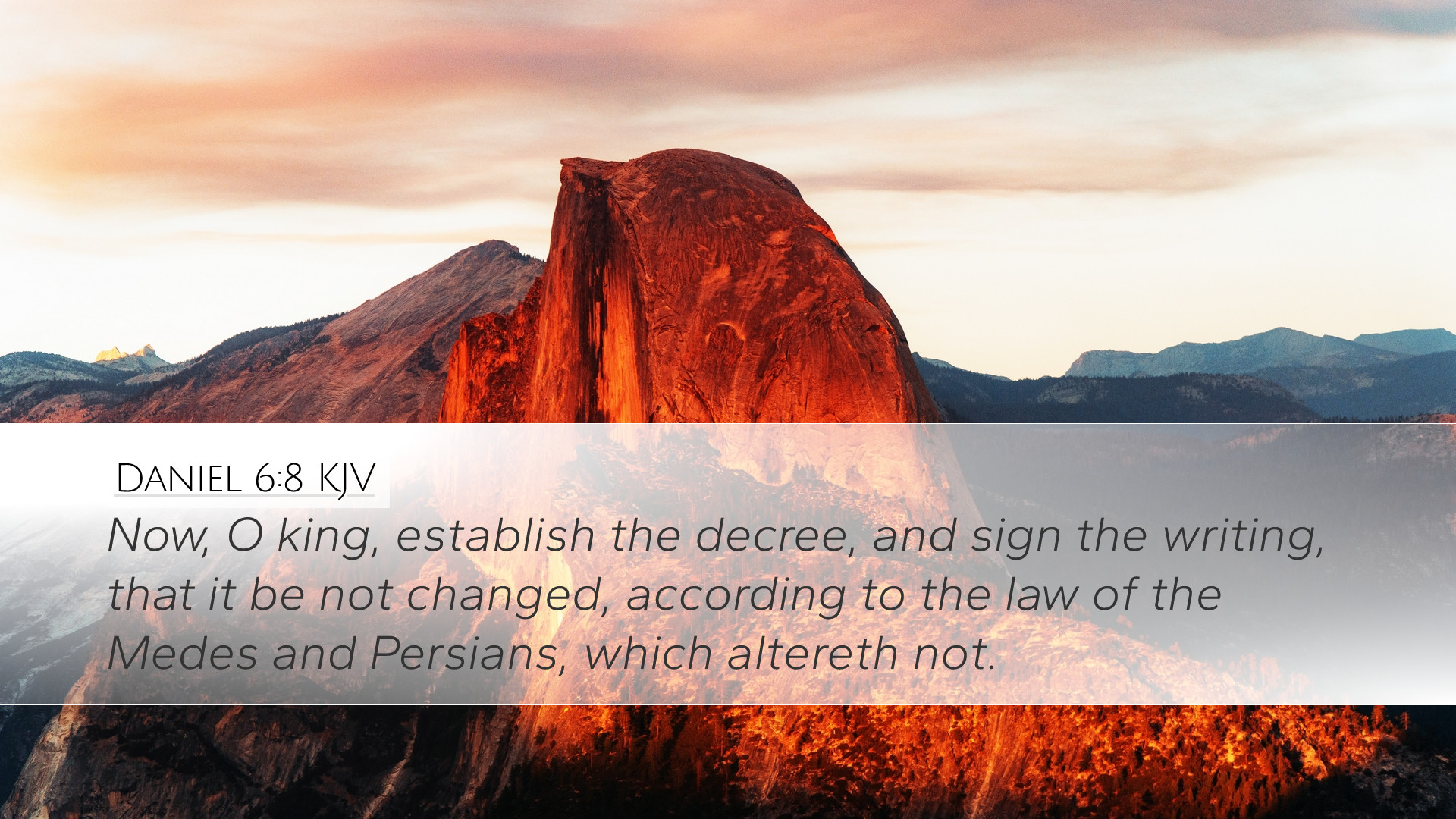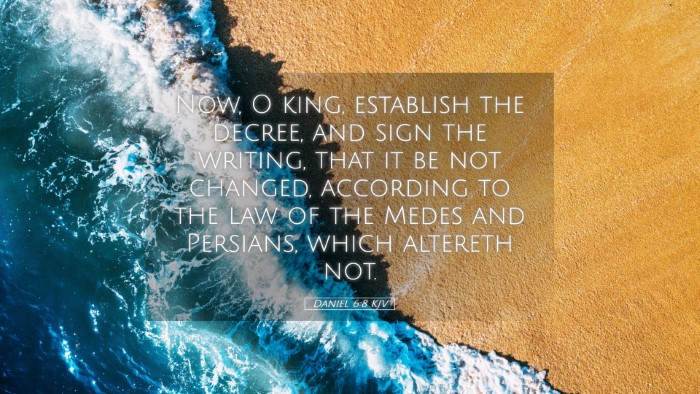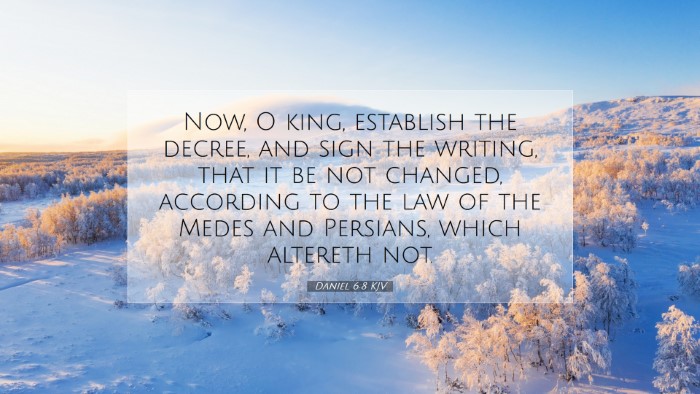Daniel 6:8 Commentary
Daniel 6:8 states:
"Now, O king, establish the decree and sign the writing, that it be not changed, according to the law of the Medes and Persians, which altereth not."
Introduction
This verse, embedded within the account of Daniel in the lion's den, warrants a comprehensive exploration to assess its theological implications and historical context. The decree refers to King Darius's injunction that one should not pray to any god or man for thirty days, except to him. The absolute nature of the decree reflects the political structure of the Medo-Persian Empire, where laws, once enacted, were unchangeable.
Exegesis and Interpretation
Analyzing Daniel 6:8 through various public domain commentaries reveals profound insights into its implications.
Contextual Background
According to Matthew Henry, this event marks a pivotal point in Daniel’s life, showcasing the tension between government authority and personal faith. In the broader narrative, the jealousy of the other governors against Daniel is evident. His distinguished service and exemplary character made him a target.
The Nature of the Decree
Albert Barnes highlights that the decree reflects a legal tradition wherein the laws established by the Medes and Persians were irrevocable. This aspect emphasizes the vulnerability of the king, who, once the decree was signed, found himself constrained by a law that he could not rescind, illustrating a kind of absolute monarchy that limited even royal power.
Religious Implications
From a theological perspective, Adam Clarke remarks on the conflict between earthly decrees and divine commands. Daniel, as a faithful servant of God, demonstrates an unwavering commitment to prayer, despite the looming threat. This scenario leads to a discussion on civil disobedience in the face of anti-religious legislation. Daniel's resolve acts as a powerful witness to the undying devotion to God irrespective of earthly retribution.
Theological Themes
Several prominent themes emerge from Daniel 6:8, offering rich material for pastors and theologians alike.
- The Sovereignty of God: The unchangeable nature of the law as noted by the text reflects God's absolute authority and sovereignty over all earthly realms.
- Integrity in Adversity: Daniel’s integrity shines in a corrupt political environment, serving as an example for believers to remain steadfast in their convictions against societal pressures.
- Faithfulness in Prayer: Daniel's refusal to comply with the decree underscores the importance of prayer in maintaining one’s relationship with God.
- Consequences of Faithfulness: The ultimate outcome of Daniel's faithfulness leads to his miraculous preservation in the lions' den; a testament to God's providence.
Practical Application
This passage urges contemporary believers to evaluate their priorities regarding faith and societal obligations. The following applications can be drawn:
- Consistency in Faith: Believers are called to uphold their commitment to God, as demonstrated by Daniel, regardless of external pressures.
- Understanding Legal Boundaries: Christians must navigate the complexities of civil obedience and divine command, seeking wisdom in situations of conflict.
- Encouragement to Stand Firm: Daniel’s story serves as a source of encouragement for those facing trials, reminding them of God’s faithfulness in times of distress.
Concluding Thoughts
Daniel 6:8 not only illustrates the historical and cultural dynamics of the time but also serves as an enduring lesson for faithfulness amidst adversity. The significance of the decree emphasizes the weight of civil authority versus divine allegiance, challenging readers to reflect deeply on their own lives in light of scriptural truths.


